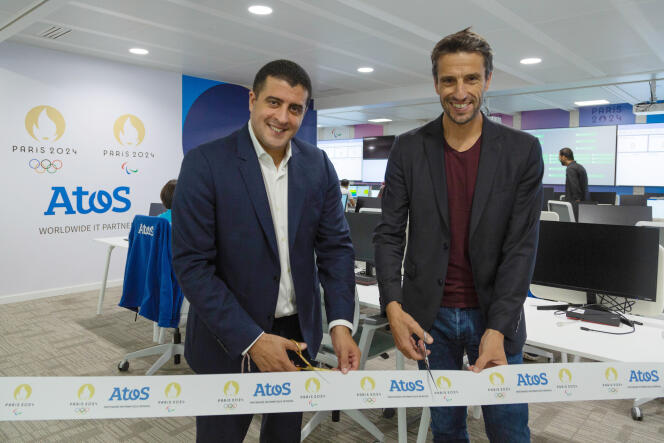It is a 610 square meter stage located in a classic building in the Paris region. Behind glass partitions, 104 computers, lined up on five rows of desks. In front of them, giant screens line the wall, giving the whole thing the appearance of a space command post. It’s from here, in this technology operations center (technology operations centerTOC), which will be managed all the IT for the Paris 2024 Olympic Games (JO), from July 26 to August 11, then the Paralympic Games, scheduled from August 28 to September 8.
A little over 300 people will take turns on site, twenty-four hours a day, seven days a week, to prevent and repair the slightest bug that could spoil the two events. Including the people seconded to the 63 Olympic sites, including 40 intended for the events, Paris 2024 will mobilize more than 2,000 IT professionals. In total, 10,000 computers and 200 applications will be used for the two Olympics.
“Technology is at the heart of the success of the Games”, recognizes Tony Estanguet, the president of Paris 2024, during a visit to the technological operations center organized on October 3 for the press. For these Olympics, an envelope of 510 million euros, out of a total budget of 4.4 billion euros, has been reserved for technology. “Thirty years ago, it was mainly about providing computers. There we are in connectivity, collection and management of data in real time”, describes Nourdine Bihmane, deputy general manager of Atos. Present at the Olympic Games since those in Barcelona in 1992, the group became the technological partner of the International Olympic Committee (IOC) in 2002.
Preparedness for extreme scenarios
Without technology, there will be no timing and results of the events in real time: very high-speed IT and telecom networks, managed by Orange, will send this official data to the screens of the commentators present on the Olympic site in just 0.35 second. For media who remain at a distance, they will arrive two seconds later. In total, Omega, the Paris 2024 timekeeper, will send more than 2 million messages from the Olympic sites to the Atos servers, data which will then have to be processed and redirected.
The IT system is also crucial for managing ticketing (13.5 million tickets will be issued) or athlete accreditations (10,500 for the Games, 4,350 for the Paralympics). Electronic and secure, these accreditations serve as an official visa for foreign athletes. IT is also cybersecurity, a very real threat, as recalled in July by Vincent Strubel, the director general of the National Information Systems Security Agency, designated by the Prime Minister as responsible for Olympic cybersecurity. On this level, the organizers want to be discreet about the means of defense used. Exercises simulating various computer attacks have already been carried out.
You have 41.08% of this article left to read. The rest is reserved for subscribers.
